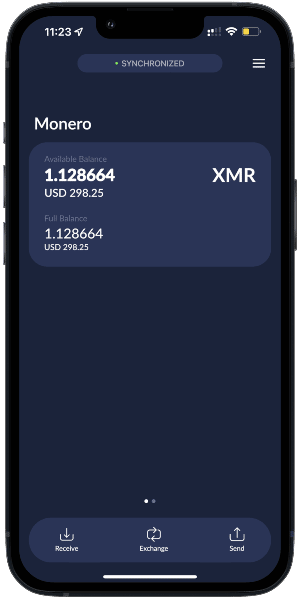
Yesterday, Monero.com announced the launch of its new fiat-to-crypto XMR buying and selling service, which requires KYC.
The new Monero.com service and the addition of KYC
The supported currencies are USD (US dollar), EUR (euro), GBP (British pound) and CAD (Canadian dollar), and payments can be made by SEPA and SWIFT transfers, and by Visa and Mastercard.
You can now buy and sell #Monero with FIAT including USD, EUR, CAD, and GBP on https://t.co/xDFmobSkOU! SEPA, SWIFT, and Visa/Mastercard are supported

Available in most countries, US excluded. KYC required for fiat buys/sells. Crypto to crypto trades remain unchanged. pic.twitter.com/G8eLqPpw5a
— Monero.com (@MoneroCom) June 1, 2022
The curious thing is the mandatory KYC requirement for those who want to use fiat currencies on the platform.
Monero.com was created primarily as a cryptocurrency with a high level of privacy, and therefore also necessarily with a high level of anonymity. In fact, anonymity is by far the main advantage of XMR.
So the question arises as to what advantages there could be in using XMR on Monero.com if identity verification (KYC) is required from those wishing to trade in fiat currency.
The real difference with the Monero protocol and the reasons for adding KYC

A few clarifications need to be made in this regard.
The first is that Monero.com does not only support fiat-to-crypto swaps, but also crypto-to-crypto swaps. These transactions remain anonymous, so the introduction of this new service does not abolish anonymity on Monero. It simply adds new features that are no longer anonymous to those already present.
The second is that Monero.com is not Monero. The website is in fact one of many user interfaces that allow XMR to be used, whereas Monero is the decentralized protocol that allows for anonymous exchanges of XMR.
The Monero.com website is centralized and managed by the Cake Labs LLC company, while the official website of the decentralized Monero protocol is getMonero.org.
The third is that it is not really possible to use anonymous services based on fiat currencies in a completely legal manner, because the law almost everywhere imposes KYC on those who operate online exchanges based on fiat currencies. Therefore, since Monero.com is centralized, and since the company running it is in fact an intermediary, they cannot escape regulations that impose KYC on them.
Other fiat-to-crypto services and the pros and cons of Monero
There are other platforms that allow fiat currency exchanges without KYC, but they are P2P platforms where exchanges take place directly between users, without intermediaries.
As long as one uses XMR on decentralized or P2P platforms, or on platforms that are limited to crypto-to-crypto exchanges, it is possible to do so anonymously, but when one turns to fiat-to-crypto platforms operated by intermediaries, total anonymity cannot realistically be expected.
This is why XMR is not so widely used around the world despite the fact that it can in fact offer a high level of privacy and anonymity, since at the moment of conversion to fiat, anonymity actually disappears.
It is sufficient to consider that there are rarely more than 30,000 transactions per day (about 20 per minute) recorded on the Monero blockchain, and that lately XMR is used as much as DOGE, for example.
The argument would change if instead of converting XMR into fiat currency, it is converted into stablecoins, which in turn can be used completely anonymously.
The post Monero.com requires KYC for new fiat-to-crypto service appeared first on The Cryptonomist.




















